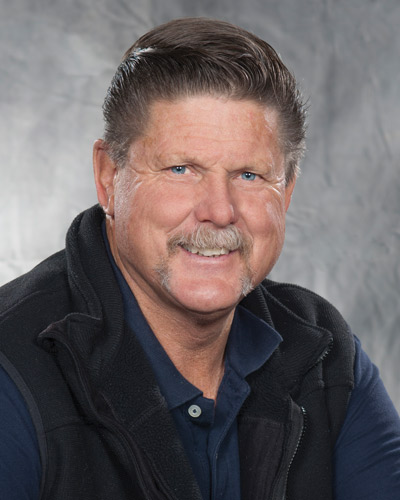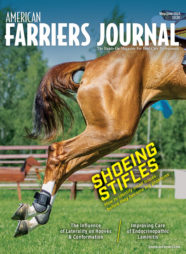In the 2009 Getting Started In Hoof Care, Pacific Coast Horseshoeing School's owner and operator Bob Smith explained the importance of maintaining good relations with clients, farriers and the professionals you deal with every day. Here are his tips for dealing with trainers:
The horse trainer is responsible for training and conditioning the horse, the equipment used, the stabling environment, feeding and turnout. The trainer can also act as an agent and interact with others who work with the horse.
Working with trainers requires a professional farrier with communication skills. The trainer sees and works with the horse, and sometimes the horse owner, on a daily basis. The farrier sees the horse every 6 to 8 weeks. A good farrier will rely upon the trainer to give detailed history about movement or lameness issues that can help in deciding how to set up the foot and type of shoeing.
Talk to the trainer. Make the effort to check in with the trainer in your barns and ask if there is anything that you need to be aware of for the shoeing or trimming of the horses you are scheduled to work on that day. Be sure to stop by at the end of the day with any information about any horse under the trainer’s care. I prefer to write a note on stationary with my name and contact information.
Listen to the trainer. Let the trainer air any concerns or issues he or she may have about the horses you are going to be working on without interrupting or becoming defensive or argumentative. Both of you should be working in the best interest of the horse and its owner.
Be proactive. Discuss shoeing changes and recommendations to the trainer before there is a problem. Include the trainer in the decision-making, as that is the person who deals with the owner over the long term.
Deliver acknowledgement. Make sure to acknowledge the accomplishments of the horse while it is under the trainer. Everyone likes to know that others think they are doing a good job.
Bring a nice bottle of wine or something to say thank you to the trainer for working with you and being the liaison between you and the owner — particularly with a difficult owner.
In spite of you best efforts, conflicts between farriers and trainers are common and very quickly boil down to a power struggle, unfortunately with the horse owner caught in the middle. It is up to us, the farriers, to make this relationship work. If everything fails then it is best to leave the account before your reputation takes a hit.
My experiences have been that aggressive trainers are either insecure and/or have an abrasive personality. There are some things that you should do when dealing with this type of trainer.
Don’t take their behavior personally. Some trainers behave in a difficult manner habitually and their attitude is not directed specifically towards you alone — they treat everyone poorly. If a trainer’s tone and actions are beyond your ability or desire to cope, then politely tell him or her that you require a professional working relationship with trainers so that the horse can benefit from everyone’s expertise. Inform the trainer that he or she has obviously lost confidence in your abilities and therefore a new farrier might be a better solution for the owner and horse.
Don’t try to fight with them. Fighting may only complicate matters further and can pave the way for a bigger argument. Allow the trainer to run out of steam. If you argue with ignorant people, those folks passing by can’t tell which one is which.
Don’t try to win the argument. Do not approach the argument with the mindset of winning it and proving the other person wrong. You may prove the trainer wrong, but that is unlikely to change his or her behavior.
Instead of trying to win, try to work towards a reasonable solution which will be in the best interests of everyone concerned. Remember your goal is simply to assertively express your own opinion, not try and win a battle of right and wrong.
Leave professionally. When you have had enough you must remain composed and professional. Do not bad mouth the trainer to the owner. Just tell the owner that the relationship with the trainer is not working out and that, in the interest of the horse, you would advise that he or she find another farrier, or perhaps the farrier that the trainer recommends. Be calm, professional and polite. Tell the owner your door is always open if he or she needs your services again.








Post a comment
Report Abusive Comment